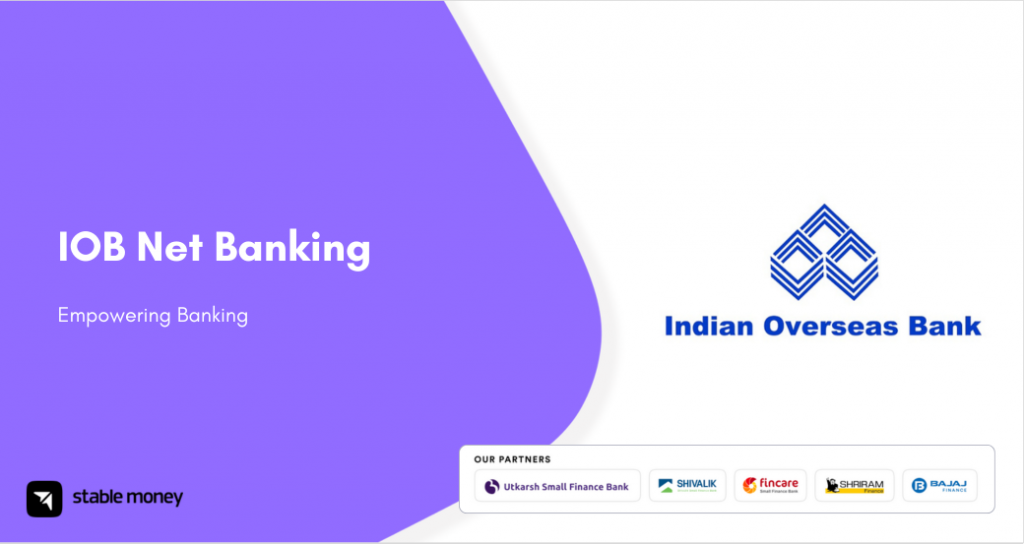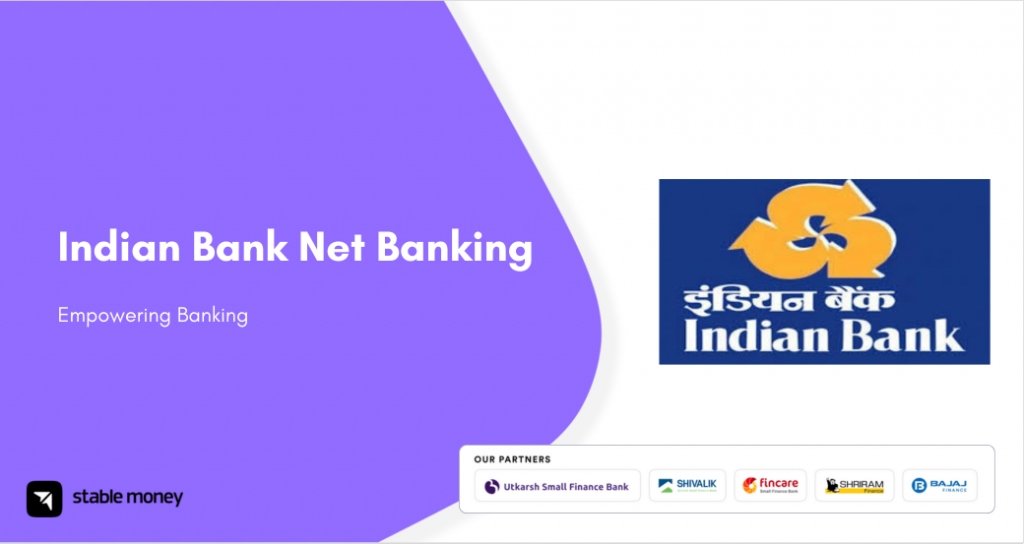
The Department of Post is known for achieving a notable milestone in the Indian banking services industry and has shown its commitment to providing a secure, easy-to-manage, and fast online banking experience through Post Office Online banking. In this blog, we will walk you through the features and services offered by this online facility.
Indian Post Office Bank Net Banking Services
Indian Post Payments Bank offers a vast array of services to its customers. Keep reading to explore their online banking services in the section below:
- Fund Transfer(Inter-bank i.e. NEFT, RTGS)
- Fund Transfer (Within Bank)
- Balance Inquiry
- Utility Bill Payments
- DTH Recharge
- Cheque Book Request
- Stop Cheque Request
- Doorstep Banking Request
How to Register to Indian Post Office Bank Net Banking?
In case you are looking for steps on how to register for Post Office online banking, go through the following stepwise guide.
- Step 1: Navigate to the official webpage of Indian Post Payments Bank.
- Step 2: Enter your account number (savings/current), DOB, ATM debit card number and registered phone number. The post office bank will send you an OTP on your registered phone number.
- Step 3: Enter the OTP.
- Step 4: Set up the password.
How to Reset Post Office Net Banking Password?
If you forgot your India Post internet banking password or want to change it, follow these below-given steps to reset your password.
- Step 1: Login to the Post Office net banking website.
- Step 2: Click on the ‘Forgot Password’ option.
- Step 3: Enter your customer/user ID.
- Step 4: Click on the ‘Submit’ button. Provide an answer to the hint question.
- Step 5: Log in with the OTP sent to your registered email ID and click on the ‘Submit’ option.
- Step 6: Set up your new password.
How to Check Indian Post Office Bank Account Balance Online?
Before checking your account balance online, you need to complete your account activation process. Here are the steps which you can refer to view your post office bank account balance via Post Office net banking.
- Step 1: Log in to the DOP e-banking portal.
- Step 2: Enter your user ID and password.
- Step 3: Enter the OTP sent to you as a verification process.
- Step 4: Select the ‘Accounts’ option. Your account’s balance will be displayed on the screen.
Indian Post Office Bank Net Banking – Daily Limits and Charges
Read along to get a detailed overview of the transaction limits and charges of India Post net banking.
IMPS Charges
| Transaction size (₹) | Savings Account | Current Account |
| Up to ₹2,000 | ₹5 | ₹5 |
| Ranging from ₹2,001 to ₹5,000 | ₹5 | ₹5 |
| More than ₹5,000 | ₹10 | ₹10 |
IMPS Transaction Limits
| Account | Minimum Amount/Transaction Limit | Maximum Amount/Transaction Limit | Per Day Limit |
| Savings Account | ₹5 | ₹50,000 | ₹2,00,000 |
| Current Account | ₹5 | ₹50,000 | ₹2,00,000 |
RTGS Charges
| Transaction size (₹) | Savings Account | Current Account |
| Ranging from ₹2 lakhs to ₹5 lakhs | ₹24.50 | ₹24.50 |
| Above ₹5 lakhs | ₹49.50 | ₹49.50 |
RTGS Transaction Limits
| Account | Minimum Amount | Maximum Amount/Transaction Limit | Per Day Limit |
| Savings Account | ₹2,00,000 | ₹5,00,000 | – |
NEFT Charges
| Transaction size (₹) | Savings Account | Current Account |
| Up to ₹10,000 | NIL | ₹2.25 |
| Ranging from ₹10,001 to ₹1 lakh | NIL | ₹4.75 |
| Ranging from ₹1 lakh to ₹2 lakhs | NIL | ₹14.75 |
| Above ₹2 lakhs | NIL | ₹24.75 |
NEFT Transaction Limits
| Account | Minimum Amount | Maximum Amount/Transaction Limit | Per Day Limit |
| Savings Account | ₹1 | ₹2,00,000 | – |
| Current Account | ₹1 | ₹2,00,000 | – |
Indian Post Office Bank Net Banking Features
The Department of Post offers the following salient features to its customers through its Post Office online banking.
- You can view monthly and quarterly bank statements and balances via their e-banking post office.
- The facility accepts online stop-and-book cheque requests.
- You can do seamless fund transfers via both inter and intra-bank.
- The online facility allows you to carry out all your electricity bills, water bills, and utility payments.
- You can do a DTH recharge with a few clicks.
- You can do bank transactions for 24 hours a day.
- You can also request for doorstep banking.
Post Office Net Banking Customer Care
You can address any queries to their dedicated customer support team. Get in touch with the Department of Post via the below-mentioned phone number (toll-free):
Customer Care Number: 1800 266 6868
Post Office Headquarters Details
Address: 2nd Floor, Speed Post Centre, Bhai Veer Singh Marg, Market Road, New Delhi-110001
Final Words
Serving as both banked and under-banked institutions, the Department of Post aims to change universal banking platforms to another level through secure transactions and innovative high-end technologies. For its customer’s convenience, India Post provides affordable and simple online banking solutions. Therefore, register to Post Office net banking to ease your overall banking experience.
FAQs
The Post Office online banking facility offers a free debit card with a yearly maintenance charge of ₹100.
To avail the services of India Post net banking, you will require an active DOB debit card, PAN card, mail ID, valid phone number, KYC documents and an active single or joint IPPB account.
The CIF ID printed on the first page of your passbook is your customer ID.
While logging into the net banking portal, India Post will give you 5 chances to enter the transaction password.
Yes, you can surely open TD or RD accounts through India Post Internet banking.
Yes, India Post allows its customers to withdraw their PPF for an eligible amount.
Disclaimer
This article is solely for educational purposes. Stable Money doesn't take any responsibility for the information or claims made in the blog.

